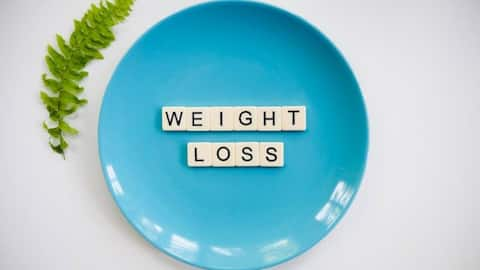Can TikTok's viral ice hack help you lose fat
What's the story
In the ever-evolving landscape of weight loss trends, a recent sensation has emerged on social media platforms like TikTok — the "ice hack diet." Influencers tout miraculous results, leaving viewers intrigued but skeptical. In this frame, we will look into the scientific intricacies and skepticism surrounding this latest weight loss craze, examining whether the hype matches reality.
Concept
What is the ice hack diet (aka Alpine ice diet)
Contrary to its captivating name, the ice hack diet doesn't revolve around ice cubes; instead, it centers on promoting a supplement called Alpilean. This dietary approach claims to elevate internal body temperature, ostensibly accelerating metabolism. However, the diet relies on unproven concepts, emphasizing the consumption of a glass of cold water to dissolve fat — a process that lacks substantial scientific backing.
Does it help
Can the Alpine ice hack help with weight loss
While the diet plays on the intriguing connection between body temperature and metabolism, it crucially lacks scientific evidence supporting its weight loss claims. Examining the ingredients in Alpilean, like ginger and turmeric, reveals a dearth of substantial research on their weight-loss impact. Furthermore, some components, like bigarade orange, raise concerns due to potential health risks, adding an element of caution to the purported benefits.
Fact
What research tells us about body temperature and weight
Looking into research on body temperature, metabolism, and weight reveals a complex and not entirely understood relationship. The claims made by the founders of the ice hack diet misinterpret studies, creating a false narrative linking decreasing body temperature to increasing weight. It is crucial to dissect and critically analyze these studies to separate fact from fiction.
Insight
Is the Alpine ice hack diet safe?
Alpilean, operating in a regulatory gray area without FDA oversight, presents potential risks. The absence of a USP Verified Seal raises legitimate concerns about the accuracy of listed ingredients, urging consumers to exercise caution. Notably, side effects associated with bitter orange, a component of Alpilean, include chest pain, anxiety, headaches, muscle and bone pain, an increased heart rate, and higher blood pressure.
Bottom line
Should you try the ice hack diet?
Experts unanimously advise against experimenting with the ice hack diet due to the glaring lack of credible evidence. While the product may encourage hydration—a positive aspect—it is essential to weigh this benefit against the exorbitant cost and potential harm. Sustainable weight loss demands holistic approaches, focusing on nourishing food, regular physical activity, effective stress management, quality sleep, and seeking professional guidance.
